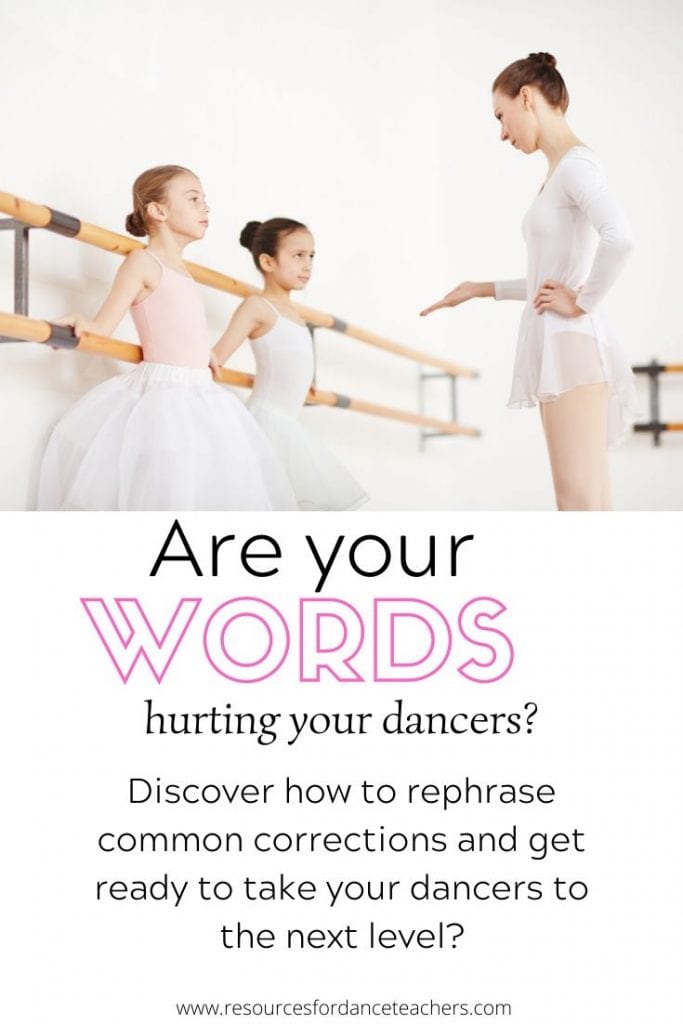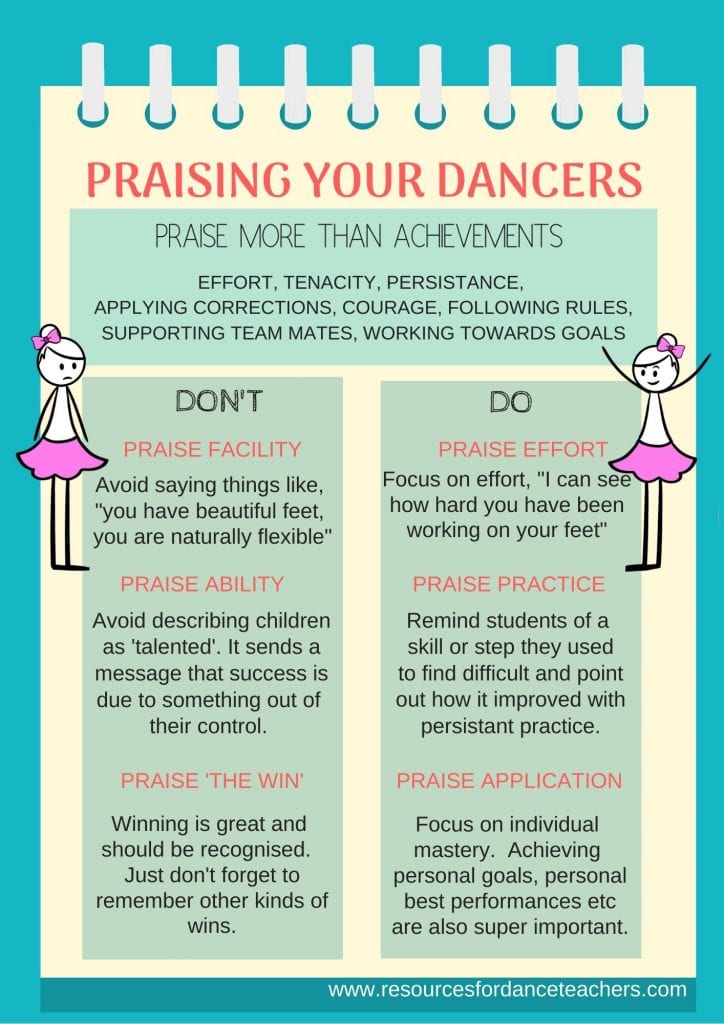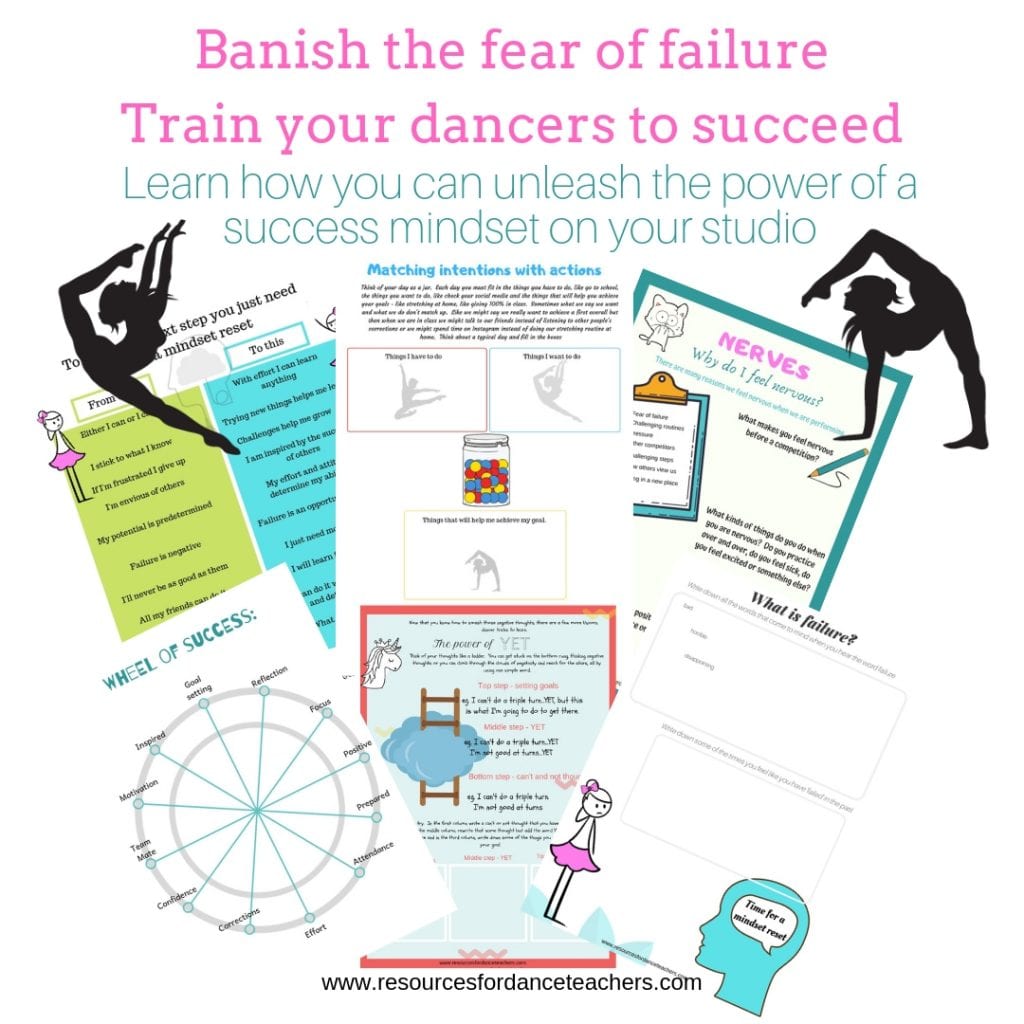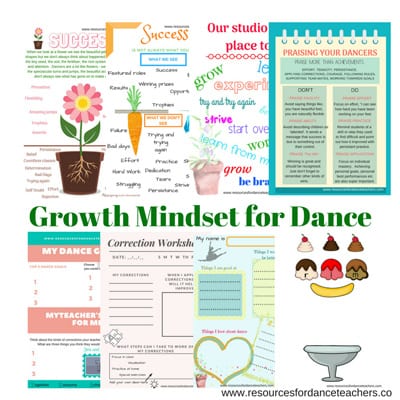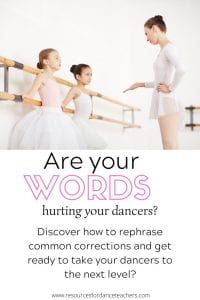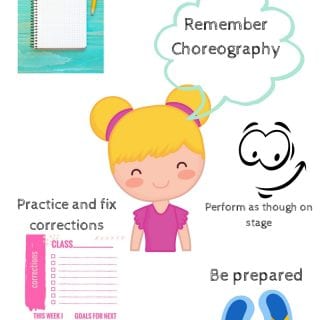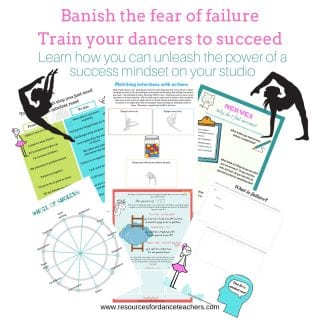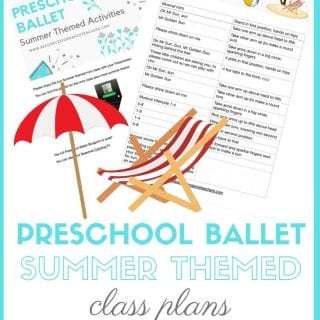3 ways to become a better dance teacher
Are your words hurting your dancers?
Sticks and stones may break my bones but words will cut me deeply. In order to become a better dance teacher one of the most fundamental changes we can make is in the words we choose when we address our dancers. Common corrections, given with the best of intentions can really start to hold dancers back. The way we speak to our dancers is in large part habit. Habits built up over our own teaching careers and habits that we have internalized from our own years of dance training. How many times have you been teaching and the words of your own teacher suddenly comes flying out of your mouth? It always makes me smile but now and again it has given me pause for thought. This type of reflection is crucial in order to become a better dance teacher. Not everything I was taught and certainly not necessarily the way I was taught it, is something I want to carry on to the next generation of students. The power of our words, especially when it comes to impressionable young dancers has the power to hold a dancer back or help them soar to new heights of success.
Become a better dance teacher with a Growth Mindset
Carol Dweck’s research into Growth Mindset clearly illustrates the importance of the way we phrase praise. You can read more about Growth mindset and Dance here but in summary, when a child is praised for ability they can become risk-averse. They start to believe that their talent is fixed, something out of their control, and as a result, start to avoid trying new things because it might disprove their talent. This is known as a fixed mindset. Unfortunately in the world of dance, messages about natural facility and natural talent ABOUND! From having beautiful ballet feet to being a natural turner, messages that you either are or are not are all around.
It is, therefore, even more, important that the messages we send INSIDE the studio don’t back these messages up. What we want to create are dancers that see the value of effort, that are faced with hard things but are willing to try to master them. We want our students to not be afraid of trying new things or of failing but to see this as all part of the process of learning. Developing as a dancer is all about pushing beyond the comfort zone, to see what is possible. It is also about the grind of hard work, about doing little things each day that whilst not the most exciting, all slot into place as the years pass by. This is known as a growth mindset.
Praise the Process, Not the Person
How to become a better dance teacher
So, how do the words we choose impact our dancers? Carol Dweck’s research shows that to help create a growth mindset it is important to praise the PROCESS not the PERSON. Here are 3 tips to help with this. You can also find a range of resources designed especially for dance teachers which promote growth mindset in dance here. Using these Growth Mindset kits in conjunction with your newfound knowledge of how to choose your words more carefully is a POWERFUL combination that will not only help you to become a better dance teacher but will help lay the foundations for new levels of success for your dancers.
1. Praise Effort not Facility
It is easy to get carried away with natural facility. The child that comes to class, sits down and their toes touch the floor when pointed, the child who puts their legs in a straddle and without any prior training achieves a near flat split. We are human and seemingly effortless ability is beguiling. We are excited at what this child could achieve. It’s ok to be excited but what is not okay is constantly praising the child for their innate abilities. In order to become a better dance teacher, we must pay particular attention to how we praise our dancers.
Praising for facility sends a harmful message that dancers are the sum of their natural talent, that they don’t need to work and that effort is unimportant. The damage extends to the rest of the class. They see you constantly praising a child for something they just have. It doesn’t take the other children long before they come to the conclusion that they will never be as good as their classmates. After all, they know that they don’t have good feet or flat turnout, or advanced mobility. Instead, it is important to focus on effort. Rather than talking about beautiful feet or a flexible back put the emphasis on how a student is using their feet or working hard to control their back.
2. Praise Practice AND Ability
In order to become a better dance teacher, always be on the lookout for evidence of practice – of a step that was once challenging that is now being mastered. Remind your students of how far they have come. Praising practice doesn’t mean you don’t praise the students who might be finding new steps easy and are performing well, just make sure that you give praise for attributes other than ability. Another way to think about this is to think about is to make your studio into a safe zone. There is a big emphasis in dance on perfection, on perfect execution of technical steps, of the ‘flawless’ performance. However, when this level of performance is expected during class time we can run into problems. Class time is a time to experiment, to push the boundaries, to fall down and get up, and to try again. It is just as important to praise and encourage these ‘failed attempts’ as it is to encourage mastery.
3. Praise Application not ‘the win’
Winning at a competition is wonderful and should be celebrated, just keep in mind that it is important to celebrate other kinds of wins too. Focus on individual mastery, achieving personal goals, personal best performances etc. Though it is easy to get carried away with competition wins, in the general scheme they don’t necessarily represent what we are trying to encourage. A student may win for a variety of reasons. They may simply be the best there on the day and yet not have performed particularly well or even put in a great deal of effort. Conversely, they may not win even though they have put in 100% effort.
I always find it useful to look at competitions in terms of what can be personally achieved. If you have given 100% to your preparation, if you went on stage and did your very best, if you achieved some small goals that you set for yourself during your performance then that is what really matters, a trophy is just the icing on the cake. If you as a teacher go into competition with this mindset and pass it onto your students, if your whole team is looking at achieving personal bests and setting and reaching goals you will be well on your way to getting the very most our of the dance competition experience. Check out the Resources for Dance Teachers Success Mindset kit to learn more about this shift in mindset.
You can learn more about Growth Mindset and Dance and how it can help you to become a better dance teacher in these articles.
Dancing with a Growth Mindset – how to set goals
How to get more out of your dancers

